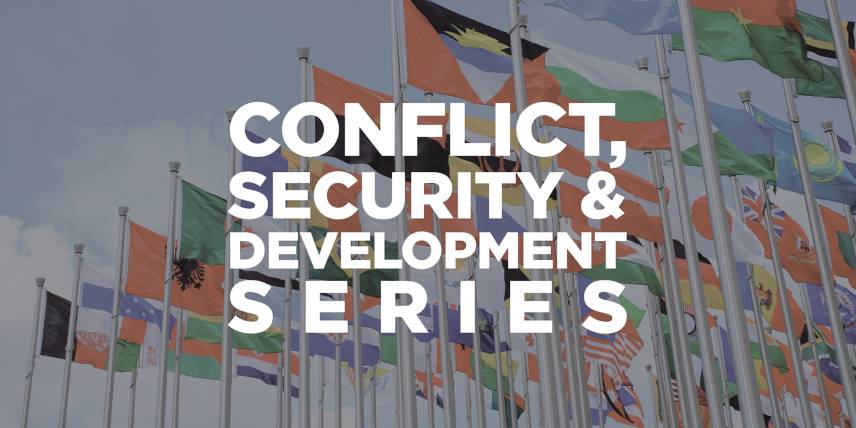Spring 2022 Conflict Series - Security in Perilous Times: In Search of a New Paradigm
Each Tuesday, the Conflict, Security, and Development Series will examine new research, discuss creative policy approaches, and highlight recent innovations in responding to the challenges of security and development in conflict and post-conflict situations.
Asli Peker is a Clinical Professor at the Program in International Relations at New York University
We are living through a momentous time, and not just because of the global pandemic. On the one hand, we are starting to feel, more frequently and concretely, the repercussions of climate change, including extreme weather events, resource scarcity, economic precarity and human and non-human displacement. On the other, we are witnessing a rising wave of nationalist/nativist movements, right-wing populist and authoritarian politics, calls for stricter immigration laws, higher border walls and less multiculturalism. All this coincides with significant scientific leaps and rapid advances in technology, often with dual use potentials, such as big data and artificial intelligence, automation, biotechnology, surveillance, space exploration and even exploitation. And finally, we are hearing, with increasing frequency, the ‘return of great power rivalry’, with an accompanying ensemble of trade wars, sanctions, negotiations, and swelling defense budgets. So what does security mean at this particular juncture when sources of insecurity are not only numerous and diverse, but also have the potential to pose existential threats? What does it mean to us as individuals, as citizens of various nation-states, as members of the human species, and as inhabitants of Planet Earth?
This talk is based on work in progress, and constitutes an invitation to reflect collectively upon the meaning(s) of security. It starts with a discussion of how and why we came to associate security predominantly with the state, and regard the state as the ultimate provider of security. It then discusses some of the imminent as well as emerging risks, threats, and vulnerabilities we face and what state responses to such challenges have looked like so far. Based on the existing track record, I argue that continuing to conceptualize security primarily through the nation-state paradigm is not only inadequate but in fact antithetical to properly identifying and addressing the myriad of challenges we currently face and is leading us down a dystopian path. Our current moment urgently calls for a radical reconceptualization of security. The presentation then ponders on alternate ways of thinking, talking and teaching about security/insecurity and some practical implications of such alternative imaginaries.
Asli Peker is a Clinical Professor at the Program in International Relations at New York University. She holds a Ph.D. in Politics from NYU and an MA in Political Science and International Relations from Bilkent University, Turkey. With a background in comparative politics, international relations and critical security studies, and a regional specialization on the Middle East, Peker’s past research has focused on state-society and civil-military relations, everyday encounters with the state, and the evolution of political science as a scientific discipline. Her most recent publication examines early attempts at standardizing the public decision-making processes in the United States in conjunction with the emergence and spread of economics-inspired approaches in political science. She is currently working on a co-authored book on International Security, forthcoming in Fall 2022 from Cambridge University Press and two article length projects that problematize conceptions of security and terrorism.
